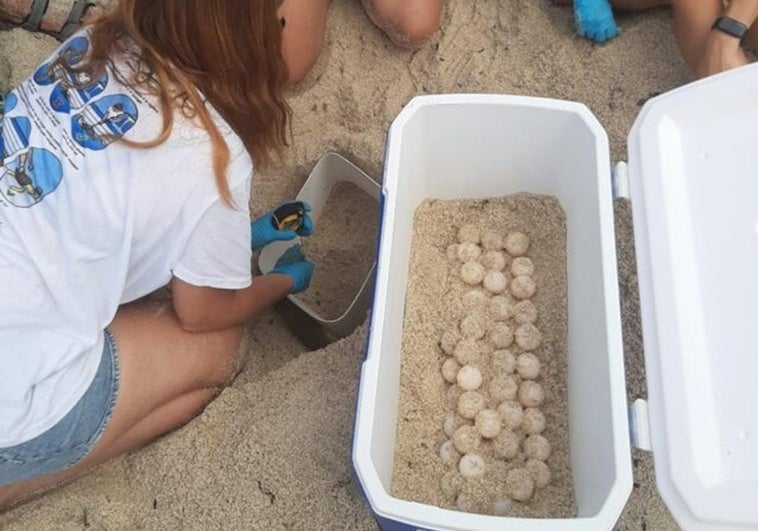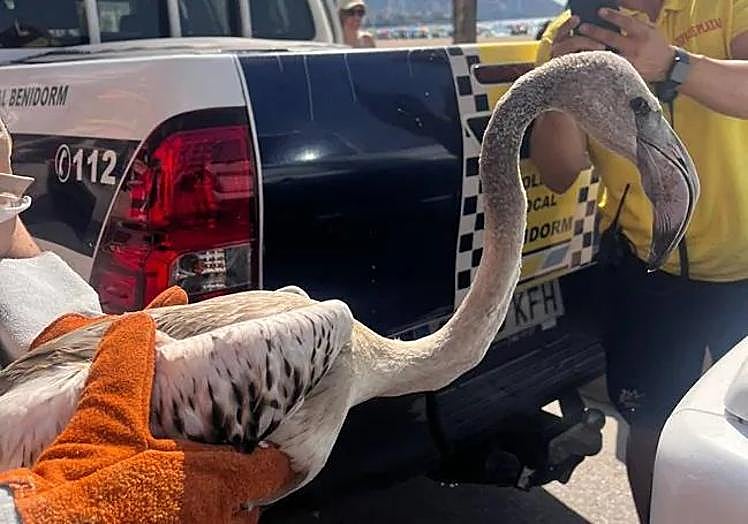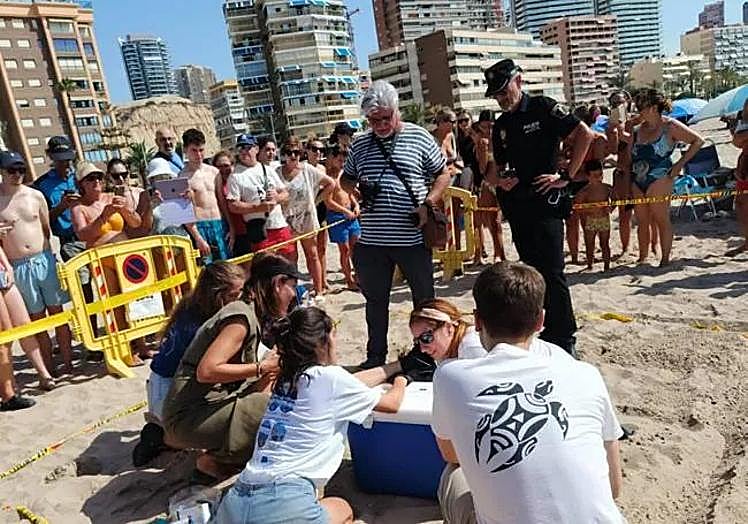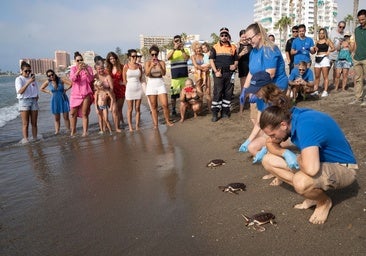
Benidorm: loggerhead turtle and flamingo turn beach into a wildlife park
A turtle has laid 28 eggs on the normally crowded Poniente beach; they have already been removed to safety by wildlife experts for incubation and monitoring
Nicolás Van Looy
Friday, 9 August 2024, 13:19
A recent study by the holiday rental platform Holidu identified Benidorm's Poniente beach as the busiest in Europe with an influx of 550,000 people throughout the year. The podium is completed by two other beaches in Spain: Papagayo in Tenerife and Malvarrosa in Valencia.
Both for their high affluence and their urban composition, neither of Benidorm's sandy beaches seem to be, at least at first glance, the ideal places for marine fauna to build their nests and yet that is what happened on Wednesday, when a loggerhead turtle laid its eggs in the sand.

Zoom

The spokesperson for the Local Police of the tourist resort, Kike Tortosa, said, "At half past seven we received a call from a swimmer telling us that there was a large turtle on Poniente beach."
Faced with this surprising development, Benidorm's Local Police despatched officers who "immediately went to the scene and were able to verify that it was a loggerhead turtle that had nested in the sand".

Zoom

At first, the police officers and council workers who went to the beach "did not know if the specimen had spawned", so for several hours they combed the area in an attempt to confirm this.
In light of this the police "activated the protocol for protected animal species", and so, while the search continued, this stretch of beach was closed to beachgoers, who had gradually begun to arrive.
Finally, as confirmed by Carla Eymar, vice-president of NGO Xaloc-Mar (a Spanish marine wildlife protection group linked to Valencia University), the turtle had laid 28 eggs that unfortunately were in a very weak state.
"The turtle had managed to lay its eggs, but when the experts from the University of Valencia took the eggs out, they found that the clutch appeared to be very weak and some were deformed or broken, which could lead to the nest not surviving. For this reason, they have decided to transfer them to an incubator in order to closely monitor their development."
While all this was going on in one part of Poniente beach, not far away on the same beach bathers were surprised by the arrival of another animal, in this case a flamingo. This has been captured by the Local Police so that, after being examined by a vet, it can be reintroduced into its normally quieter habitat.
